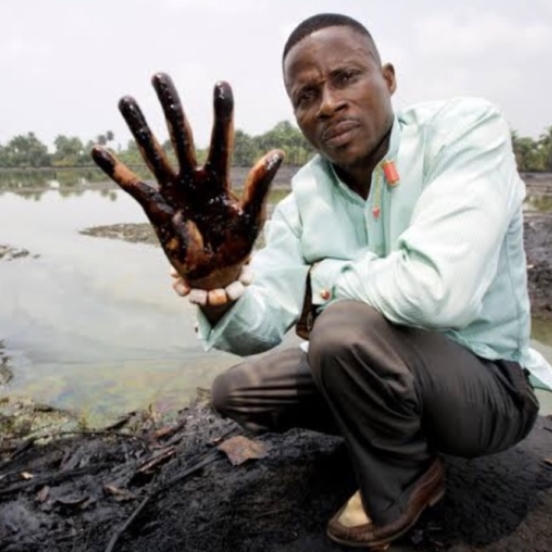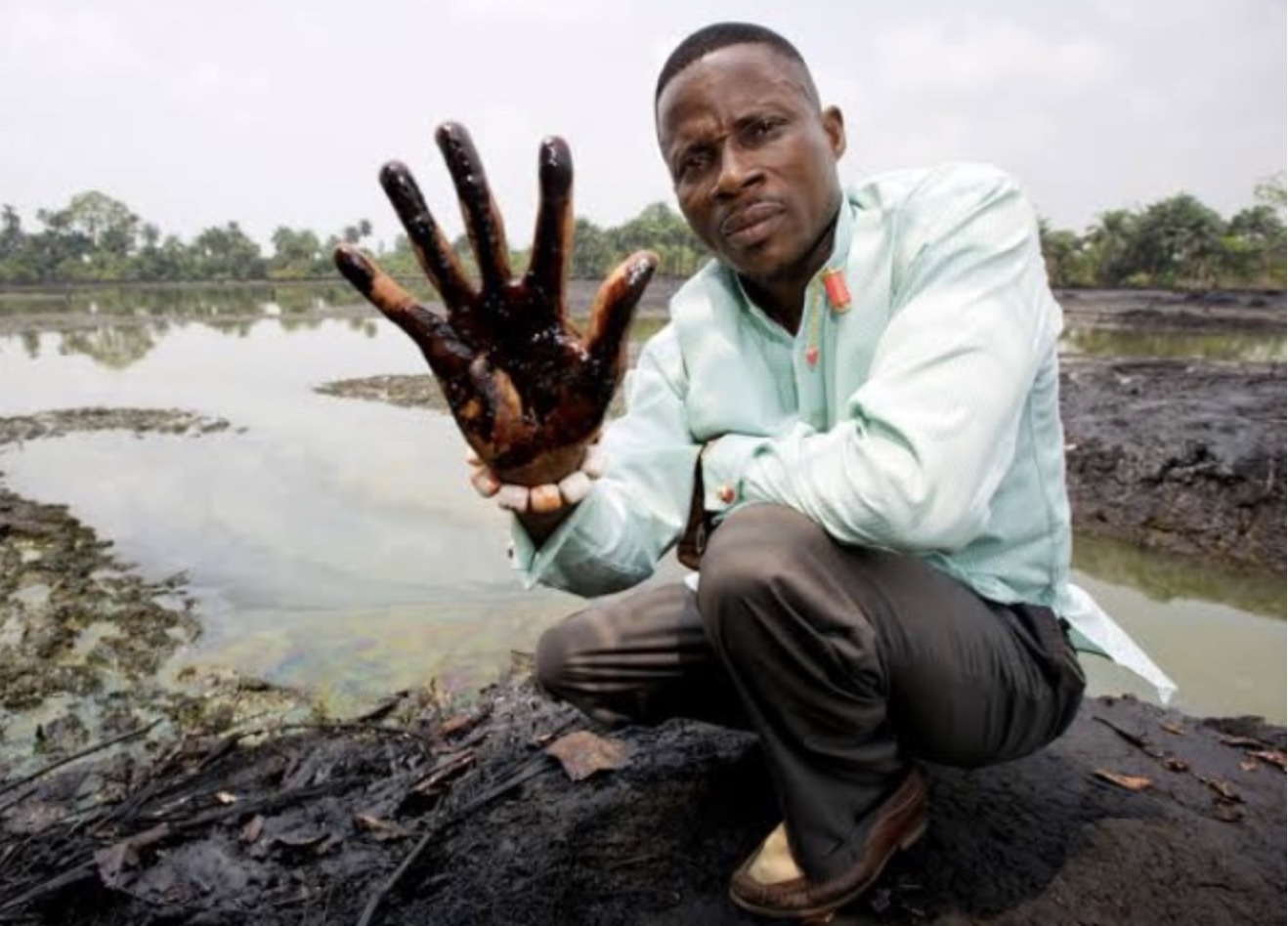Climate, Health and Equity Brief
Brain health, dry wells, and the U.S. and China meet
November 28, 2022

The Climate, Health & Equity Brief is GMMB’s take on the week’s news on the current impacts of climate change. If you haven’t subscribed yet, you can do so by clicking here.
Hot Topic: Human health. A series of stories this week remind us just how much both refining and burning fossil fuels—and the planetary heating and follow-on impacts they cause—directly impact human safety and health.
New data from the WHO shared at COP27 estimate that globally, burning fossil fuels causes more than 8 million excess deaths per year. Fossil fuel extraction by wealthy nations has exploited regions like Africa’s Niger Delta for decades, where resulting crude oil leaks and pipeline breaks have devastated wetlands, and airborne black soot has and driven up respiratory illness, early menopause, cancer and birth defects and lowered the region’s life expectancy by 10 years.
The impacts of particulate matter (PM) pollution on our cardiovascular and respiratory systems, as well as their links to cancer, are well documented. A new study this week also illustrates significant negative impacts on the nervous system. These particles can act as neurotoxicants, impacting cell growth and leading to mental and cognitive developmental disorders, ADHD, and autism spectrum disorder, especially in the developing brains of infants and children.
And the follow-on impacts of a heating planet continue to impact people in every corner of the globe. In California, after a third consecutive year of climate-fueled severe drought, wells are drying up at a record pace. Nearly half of the tracked wells in the state are far below normal or at an all-time low, leaving many communities reliant on bottled and trucked-in water to survive, as the entire state struggles with water policies to protect agricultural production and ensure sufficient residential water access.
Given the clear, scientific evidence of the impacts of climate change, all eyes were on leaders at COP27 to take urgent action. While some significant country commitments were made, the first draft of the agreement still lacks consensus or concrete commitment on the two most critical actions: phasing out all fossil fuels and compensating vulnerable nations for the damage caused by climate change.
In hopeful news, President Biden and Chinese President Xi Jinping met this week and agreed to restart climate negotiations that had stalled since August, promising to deepen constructive climate efforts between the planet’s two biggest carbon-polluting nations.
—Matt & Traci, GMMB
Human Health
Nearly half of the 3,700 tracked wells in California are far below normal or at an all-time low, leaving many communities reliant on bottled and trucked-in water to survive. (The Washington Post)
A new study reveals how air pollution from heavy industry and fossil fuel use is slowly poisoning humans with neurotoxicants that damage the central nervous system and can lead to motor and cognitive impairment and neuropsychological disorders, especially in children. (News Medical)
New data from the WHO estimates that burning fossil fuels causes more than 8 million excess deaths per year and has exploited and devastated regions like the Niger Delta, where resulting black soot has driven up respiratory illness, early menopause, cancer and birth defects and lowered the region’s life expectancy by 10 years. (Health Policy Watch)
Relentless rains and severe flooding are wreaking havoc in New South Wales, Australia, causing hundreds of rooftop evacuations, cutting off entire rural towns, and leaving many residents frustrated with the slow relief efforts and delayed warnings. (Reuters)
Planetary Health
A new study found that if the world stays at the 2022 rate of global emissions, the Paris Agreement goal of limiting global temperature increases to 1.5°C will likely be permanently out of reach in just nine years. (Quartz, NBC News)
Equity
Severe droughts, intense storms and rising sea levels are worsening conditions for Cuba’s agricultural sector, resulting in sharply decreased productivity as food producers migrate from the island. (Aljazeera)
Politics & Economy
President Biden and Chinese President Xi Jinping agreed to restart climate negotiations that had stalled since August, promising to empower senior officials to deepen their constructive efforts at COP27 and beyond. (The New York Times)
An initial draft of the COP27 agreement reaffirms the need for greater climate ambition and funding but fails to deliver specific calls to phase out all fossil fuels or create a loss and damage fund for developing nations. (Reuters)
President Biden announced a new supplemental rule that further tightens methane emission regulations by requiring all drilling sites, including smaller wells, to find and plug methane leaks. (Associated Press)
A new analysis of university power plants revealed that despite touting their green credentials, many leading U.S. colleges emit dirty pollutants at higher average rates than typical commercial electric utilities, oil refineries and paper mills. (Reuters)
Life as We Know It
The world’s population reached eight billion people on Tuesday, and the U.N. projects the population to peak at 10.4 billion in 2086 before beginning an overall expected overall decline. (The Washington Post)
As climate change diminishes sea ice, polar bears are expected to range farther into towns and camps, so researchers in Churchill, Manitoba, are developing and testing relatively cheap radar technology that could provide an early warning of the presence of polar bears. (NBC News)
Action
The U.S., Japan and other allies signed a $20 billion deal to help Indonesia—the world’s third-largest coal producer—reach net zero emissions in its power sector by 2050. (The Hill)
President-elect Luiz Inácio Lula da Silva of Brazil has reignited hope of saving the Amazon Rainforest at COP27 by promising to end rampant deforestation and protect the region’s biodiversity and indigenous communities through restoration efforts and a crackdown on climate criminals. (BBC)
Kicker
Worried about your kids’ health in the face of a heating planet? Check out Children’s Health and the Peril of Climate Change, a new book by environmental health scientist (and Brief subscriber) Dr.Frederica Perera that explores the mental and physical harms to children’s health inflicted by climate change.
The Earth is what we all have in common.”
– Wendell Berry
The GMMB Climate, Health & Equity Brief would not be possible without the contributions of the larger GMMB California team— Thomas, Baer, Aaron Benavides, Stefana Hendronetto, Sharde Olabanji and Quincy Tichenor, Feedback on the Brief is welcome and encouraged and should be sent to CHandEBrief@gmmb.com.






